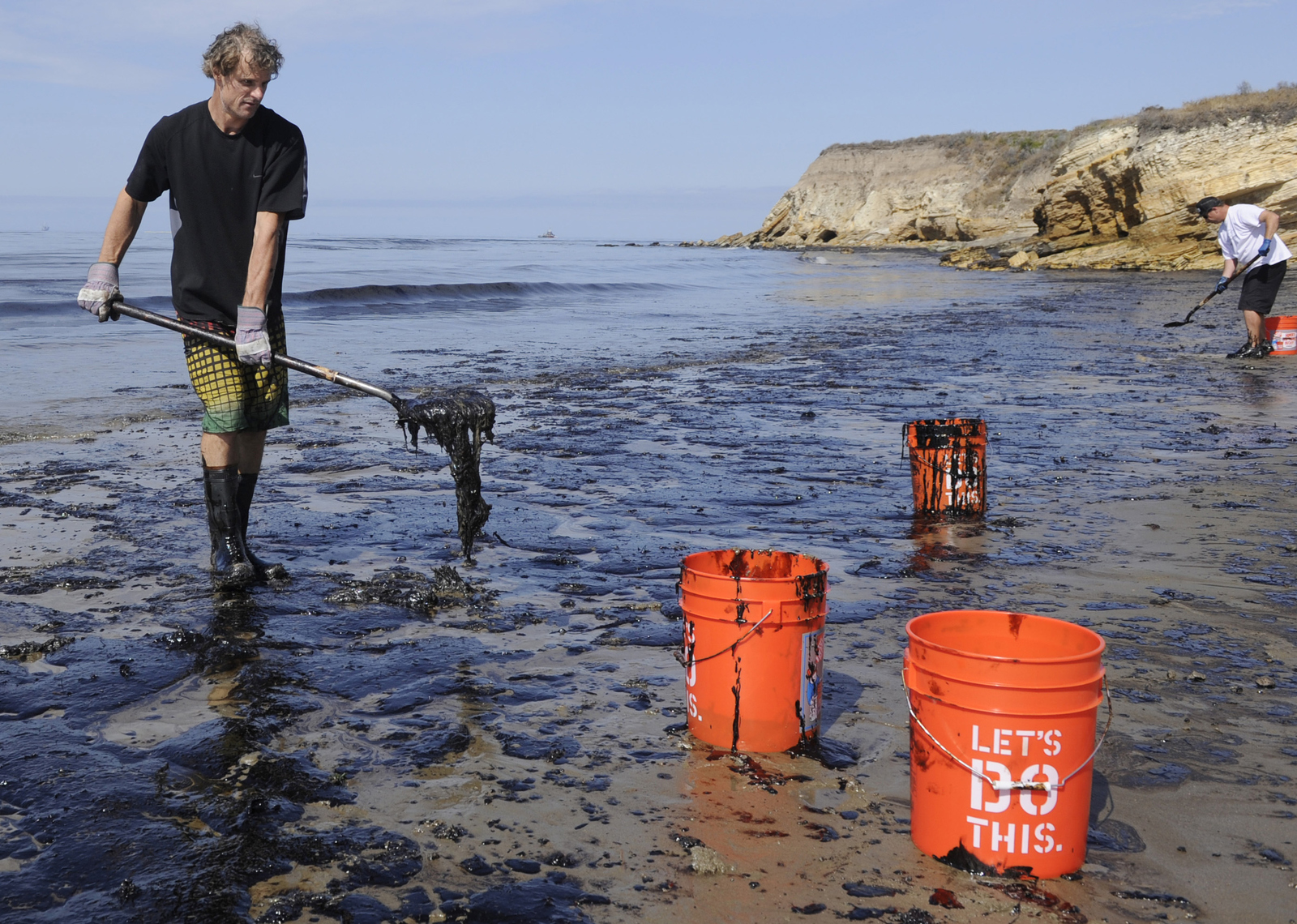Plains Ordered to Pay $60 Million for Refugio Oil Spill
Santa Barbara Environmentalists Argue Settlement Is Premature and Potentially Inadequate

On May 19, 2015, a corroded pipeline owned by Plains All American Pipeline broke north of Refugio Beach, sending more than 100,000 gallons of crude oil into the waters of the Santa Barbara Coast. No corner of our community was left untouched by the devastation: industries like tourism and fishing were hammered, and the local ecosystem, including countless marine mammals and sea birds, were affected. As has been the case on several occasions in our city’s history, the negligence of the oil industry spilled out into the crystalline waters of the Pacific, and the community was left to put things back together.
In September 2018, Plains All American Pipeline, a Houston-based energy company, was convicted of fouling state waters and harming local wildlife by a California jury. Now, in a settlement that came last week, Plains has been ordered to pay $60 million for the damages created by what were ruled to be negligent practices that contributed to the spill.
However, some environmental organizations are holding back on celebrations. On March 19, the Environmental Defense Center (EDC) put out a statement questioning the wisdom of locking down the amount of Plains’ payment before the public has had the opportunity to review and comment on the damage assessment and draft restoration plan.
Linda Krop, chief counsel for the EDC, also expressed concern that the gallon figure of 123,000 gallons may be too low. “There’s a scientific paper from UCSB suggesting that the number of gallons spilled might be as high as 450,000 gallons, so to us it doesn’t make sense to lock in a penalty that may actually be much too low,” said Krop. “This settlement is taking place before the public has an opportunity to comment on the draft assessment of impact to the environment and public recreation.”
State Senator Hannah-Beth Jackson, who played a large role in the early days of investigating the incident and was highly critical of Plains’s conduct, expressed similar concerns. “The good news is that they’ll have to adhere to California standards, which they’d previously argued they should be exempt from because they claim to be an inter-state enterprise,” said Jackson. “But this business of making a decision about the dollar amount before the public has all of the information is problematic to me. I’m a little concerned about that.”
Asked for comment, Plains sent the following statement: “This Consent Decree represents a significant step and is the culmination of collaborative discussions with federal and state agencies over the course of a multi-year period. The consent decree sets forth certain improvement actions that we are implementing into our operations. We take our responsibility for the safe delivery of energy resources very seriously and we are committed to designing, constructing, operating and maintaining our assets in a safe, reliable and responsible manner.”



